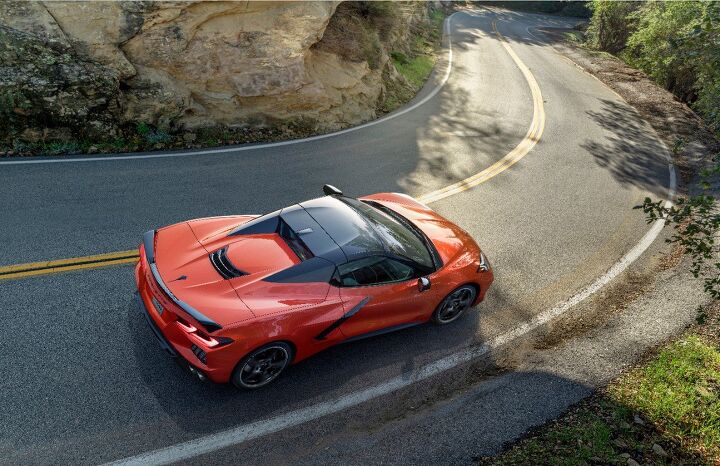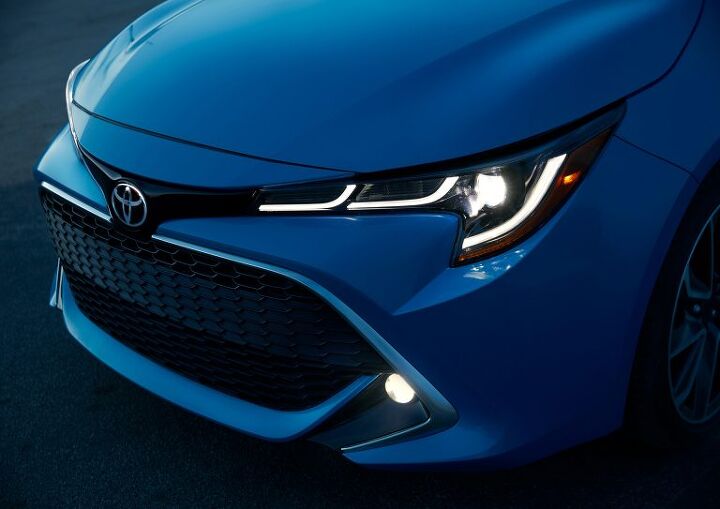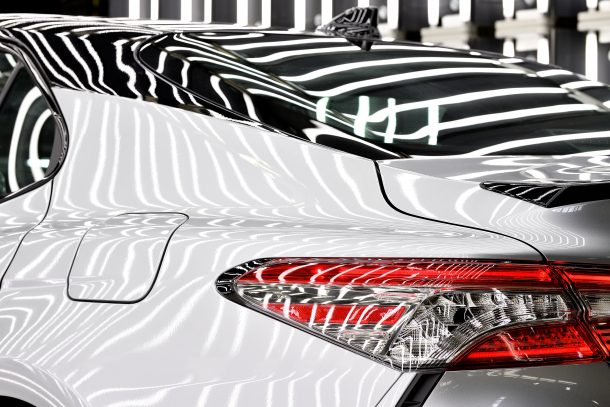#ProductionPlanning
Corvette Production Stalled Again as Mexican Suppliers Deal With COVID
General Motors is stopping production of the Chevrolet Corvette for the rest of the week after Mexican suppliers once again found themselves having to contend with the pandemic. While Johnson & Johnson’s Janssen unit has been given the go ahead to begin late stage trials for its coronavirus vaccine in Mexico, the nation has introduced new restrictions as the country reported a spike in infections last month.
On Wednesday, GM spokesman David Barnas informed The Detroit News that Bowling Green Assembly in Kentucky will be closed for Veterans Day but remain closed through the weekend due to supply chain issues. The manufacturer does not see this as turning into a prolonged idle period for the Corvette, but we’re wondering about other models — and not just those manufactured by General Motors. While Mexican suppliers are supposed to rebound swiftly, Europe has also instituted new lockdowns that could affect supply chains if they’re extended.
Toyota Plots Record Production Push to Counter How Crappy 2020 Has Been
Toyota is reportedly seeking to supercharge vehicle production to record levels in the latter half of 2020 as a way to help offset how lousy the rest of the year has been. Its previous six-month record was achieved in 2015 and resulted in 4.53 million sparkling new automobiles. But Toyota would like to eclipse that this year and is targeting 4.6 new vehicles between July and December, with the biggest assembly push coming in the final quarter.
Nissan Predicts Incredibly Lean Year, Plans Accordingly
Nissan’s all-important turnaround has been complicated immensely by the coronavirus pandemic. Supply chains fell into in shambles as countless factories temporarily closed as a countermeasure, harming profits as demand came to a screeching halt. Now there’s a looming recession that many economists fear may surpass the Great Depression — though this was a concern years before the COVID response hit the accelerator, thanks to growing debt and the way finance has been allowed to operate for decades.
Seeing the writing on the wall, many automakers have tamped down expectations for 2020. Being in the peculiar position of restructuring before the pandemic hit — which isn’t all that unique within the industry, truth be told — Nissan is reportedly plotting a 30 percent year-on-year cut in global production.
Ford Confirms F-Series Hybrid Bound for Dearborn, Celebrates Rouge's 100th Birthday
Ford confirmed the assembly locale of its F-150 Hybrid this week, saying the electrified pickup would not stray from its aluminum-bodied brethren. The hybridized F-Series will, unsurprisingly, go into production at the Rouge’s Dearborn Truck Plant in 2020, with additional (non-hybrid) production handled by Ford’s Kansas City Assembly.
The automaker made the announcement as part of its 100th anniversary celebration of the River Rouge Complex. While that left the F-150 proclamation a little light on details, Ford previously said the model would probably not be a plug-in hybrid, but would boast outlets for electrically powered tools/devices — functioning as a mobile generator. However, the announcement itself focused primarily on celebrating the Rouge’s centennial.
Ferrari Makes No Bones About Its 'Utility Vehicle' Being About Anything Other Than Money
Ferrari will likely add a comparatively spacious four-seat “utility vehicle” to its lineup in the hopes of bolstering volume and doubling its profits by 2022. The strategy certainly has worked for Porsche. So well, in fact, that Lamborghini has made plans to introduce the Urus SUV for 2019 — using Volkswagen Group’s MLB platform. The spiritual successor to the wild LM002 is expected to outperform Bentley’s ludicrous Bentayga and would likely be Ferrari’s chief rival in the super sport utility segment.
The concept of a Ferrari-built SUV has drifted around the automaker’s Maranello and Amsterdam offices for a few years, but now inside sources claim a comprehensive strategy for the vehicle should be unveiled by 2018. However, enacting it would fundamentally change the brand.
As a low-volume automaker, Ferrari is not subject to the same rigid emissions regulations imposed on other car companies. But CEO and sweater aficionado Sergio Marchionne has been pressing the company to increase volume ever since taking the company’s helm in 2014, consequences be damned.
Toyota Claims New Camry Represents an Evolution for the Entire Company
Toyota is claiming that its TNGA modular platform represents more than a sea change for the Camry. It points to an entirely new direction for the company as a whole, highlighting its commitment to American manufacturing and a future involving more exciting vehicles.
While the latter remains to be seen, the Toyota New Global Architecture has warped the company’s midsize sedan into something almost unrecognizable. With substantially “more-aggressive” styling, the Camry is also boasting efficiency and performance gains — thanks to the platform’s low center of gravity and increased rigidity. But Toyota doesn’t want to keep the technology limited to America’s best-selling sedan, the architecture and concept are set to be baked into future vehicles as well. Because what good is cost-saving modular platform if you are only use it on a single model?





















Recent Comments